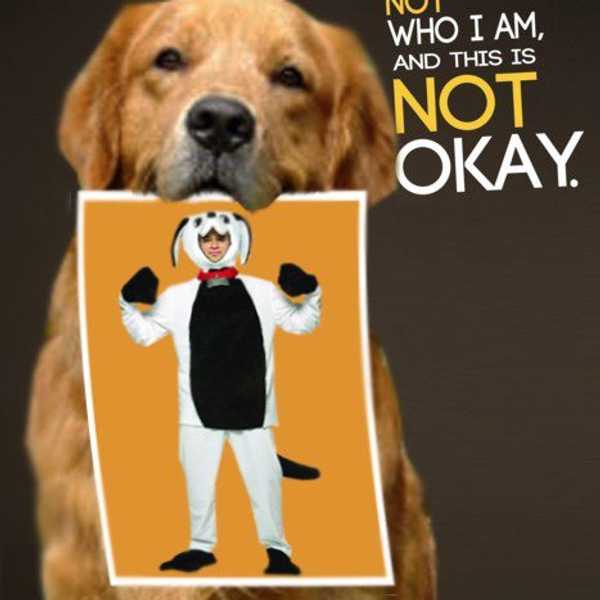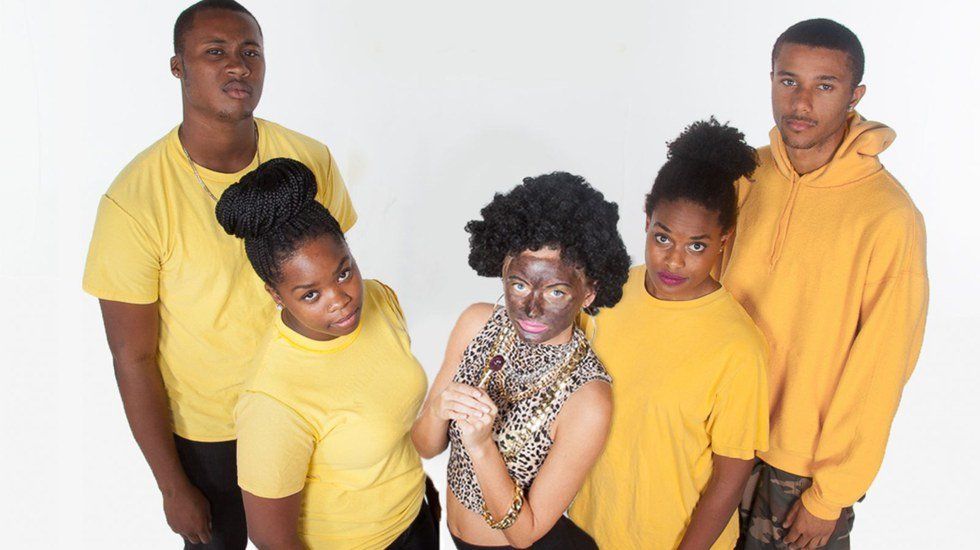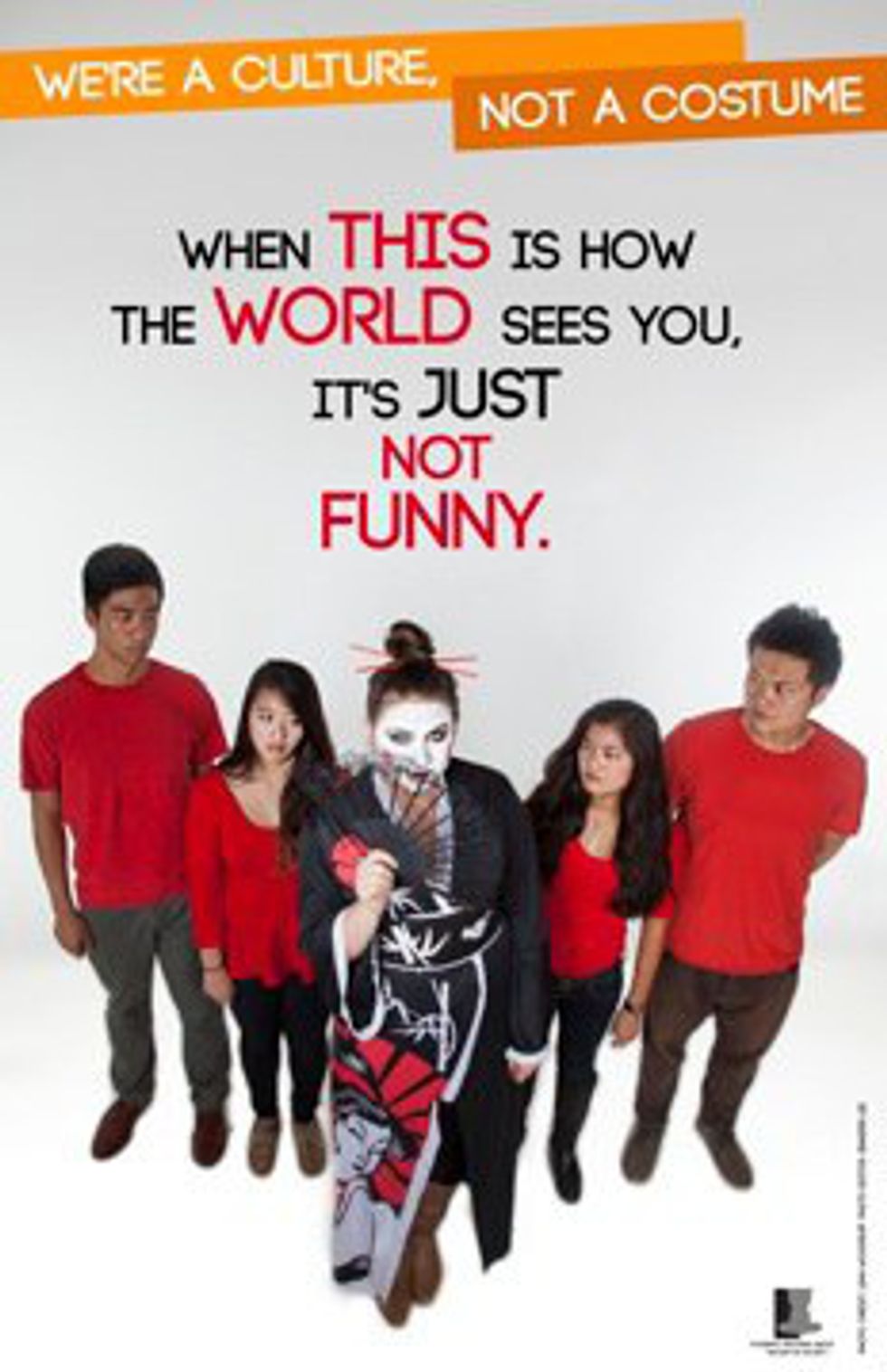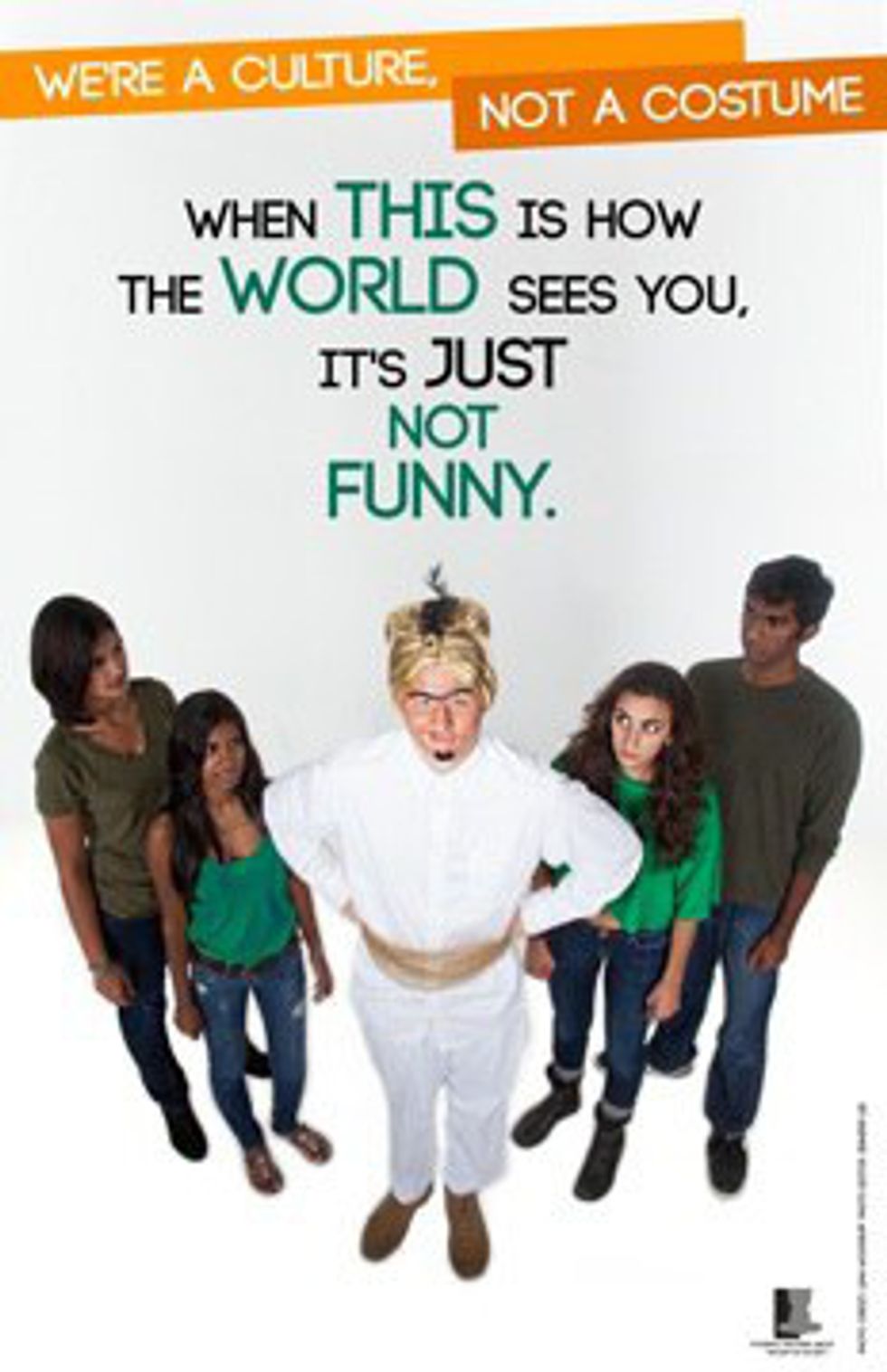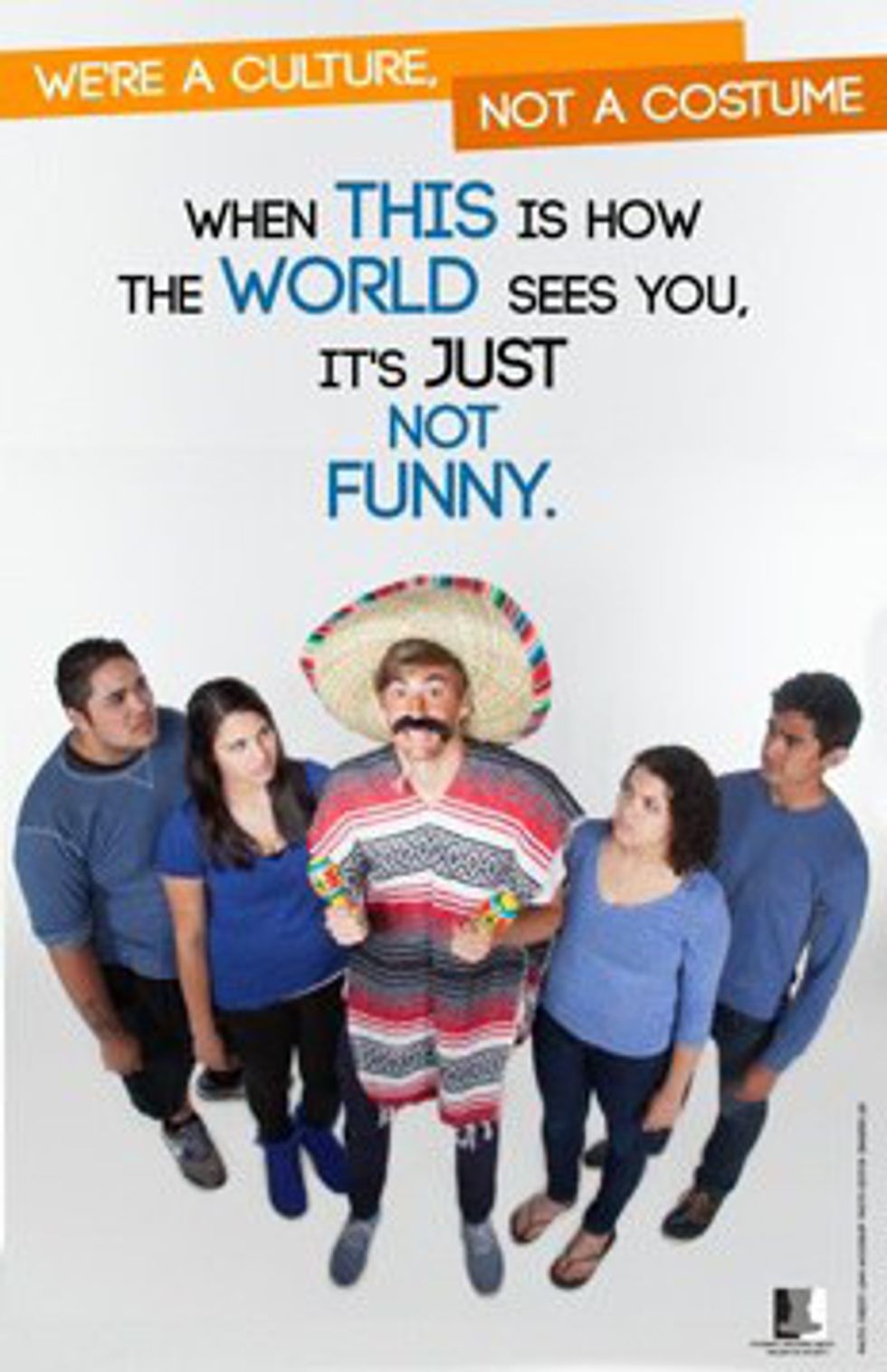With Halloween quickly approaching, the ideas of what to dress up as are clogging the minds of everyone who loves the spooky October holiday.
However, some of these ideas contain the very micro(and sometimes not-so-micro) -aggressions that fuels today's racism.
Social media posts discussing culturally insensitive costumes have become more and more popular in recent years, and in even more recent years critics have claimed it's just another example of the "Politically Correct Agenda" liberals are always promoting.
Let's take a moment to think about this.
Asking people to simply not dress up as the parody of a certain culture is considered to be "too hard" to do and only easy if you're a fan of being "Politically Correct."
Look, I know that older people have a problem with millennials for a variety of reasons.
We're easily offended, we call people out on their racism, we don't think gay people are a disgrace, we believe gender can be fluid and that men shouldn't talk about rape like it's a simple conversation being had in a casual setting such as a locker room.
I get it.
Here's the thing, though: it's not that hard.
It's not that hard to not be offensive if you're already a nice person. It's not that hard to not be offensive if you take time to listen to those offended, and understand that whatever you were doing was unnecessary and did nothing but make a group of people uncomfortable and why it made them feel that way.
If you think not being offensive is hard, I'm very afraid of the kind of person you are.
But I know, I know, it's too idealistic.
The worst thing about this racist Halloween phenomenon is that the most common offenders aren't even such obvious ones like black face, which is offensive for so many more reasons than I can fit in a simple article. It's that they're costumes we have so widely accepted as normal, many can't even find what's wrong with them.
They can be as simple as dressing up as a "Native American Princess" or a "Japanese Geisha" or simply "a Mexican".
In 2011, a group of ten students from Ohio University launched a campaign whose slogan read "We're a culture, not a costume."
The group, which was comprised of members of the Students Teaching Against Racism Society (STARS), created posters depicting students of ethnic minorities denouncing the costumes.
After the posters went viral, STARS created a new series for the 2013 year.
Noticeably, it's only cultures containing people of color.
Now, that raises the question of: should 'white people' costumes also be labeled offensive?
Let's answer that with a simple google search.
If you type 'White people Halloween costume' into the google image search bar, you will find a few pictures. There's one or two of people dressing up in grey-scale, requiring them to put white/grey paint on their face and a still of Dave Chappelle during an infamous, unaired skit where he painted himself white, but after those three or four images, you will find a myriad of white people putting on blackface. The true horror hitting you when you get to the, unfortunately, recent pictures of Julianne Hough dressing up as Suzanne (Crazy Eyes) from the Netflix original series, "Orange is the New Black" in 2013.
Now, let's type in something else, something like 'Mexican people Halloween costume'.
Immediately after typing that in, I was directed to a dozen websites where I can buy a "Mexican costume" and hundreds of images from these websites flaunting their good-hearted racism for sale. Oh look, only $32.99 AND I get a fake mustache. WHAT A STEAL!
Come on, people! With how many different movies, TV shows, books, puns, art and even MEMES that exists in this world, the most creative thing you can come up with is really just a dude in a sombrero?
Needless to say, there aren't white people costumes because apparently there's no market for selling a fake Starbucks mug with a Trump 2016 shirt.
However you feel about racist Halloween costumes, there's no doubt that they've started a necessary conversation about cultural appropriation and racial insensitivity in America.


